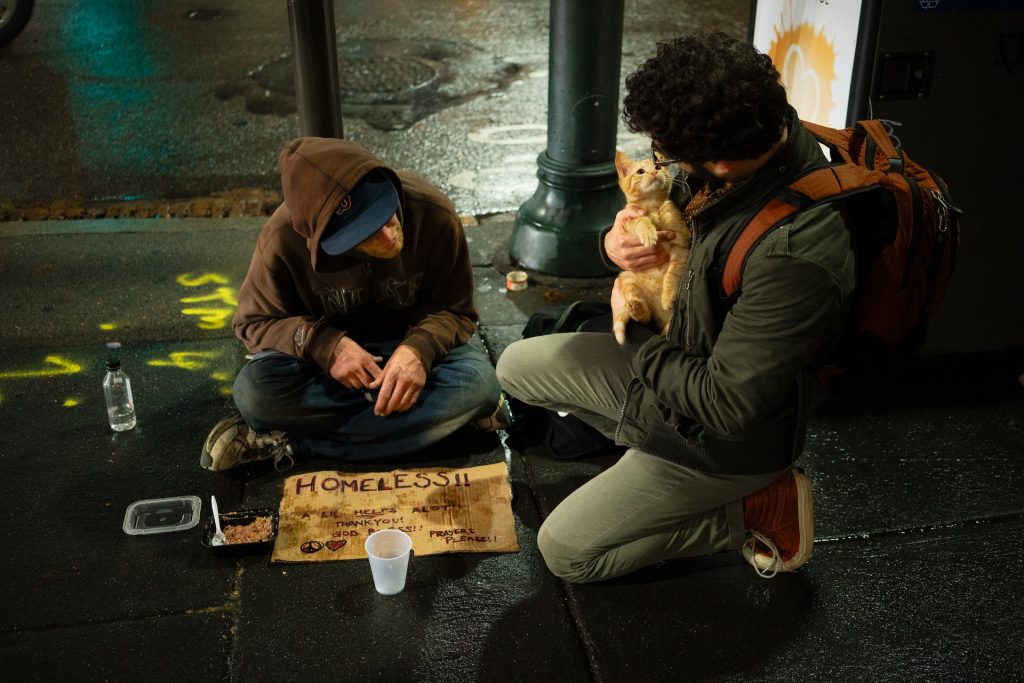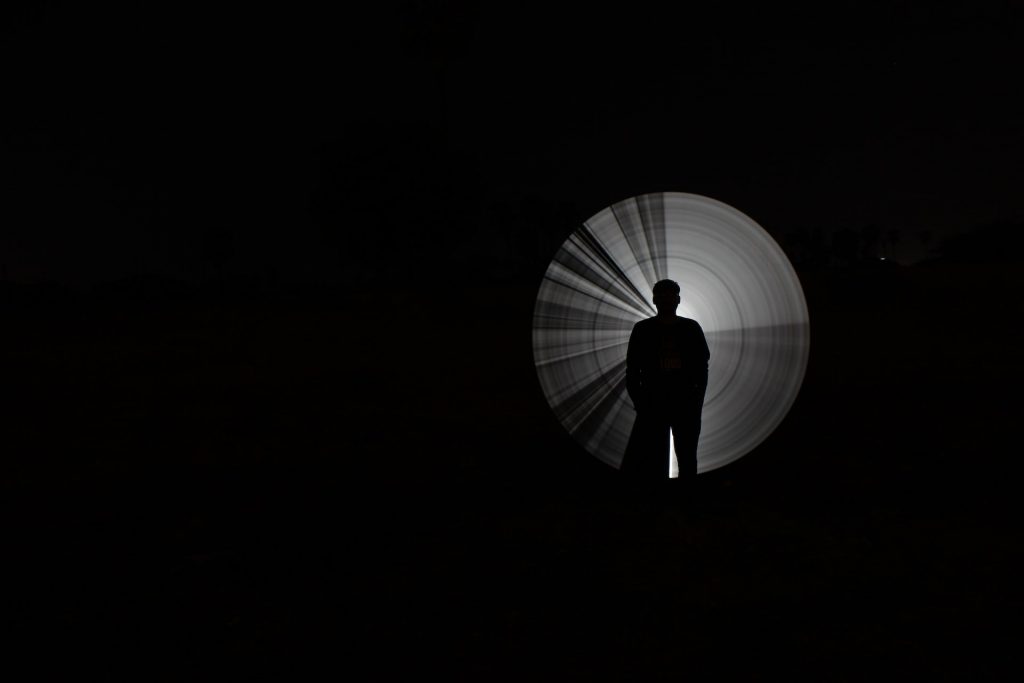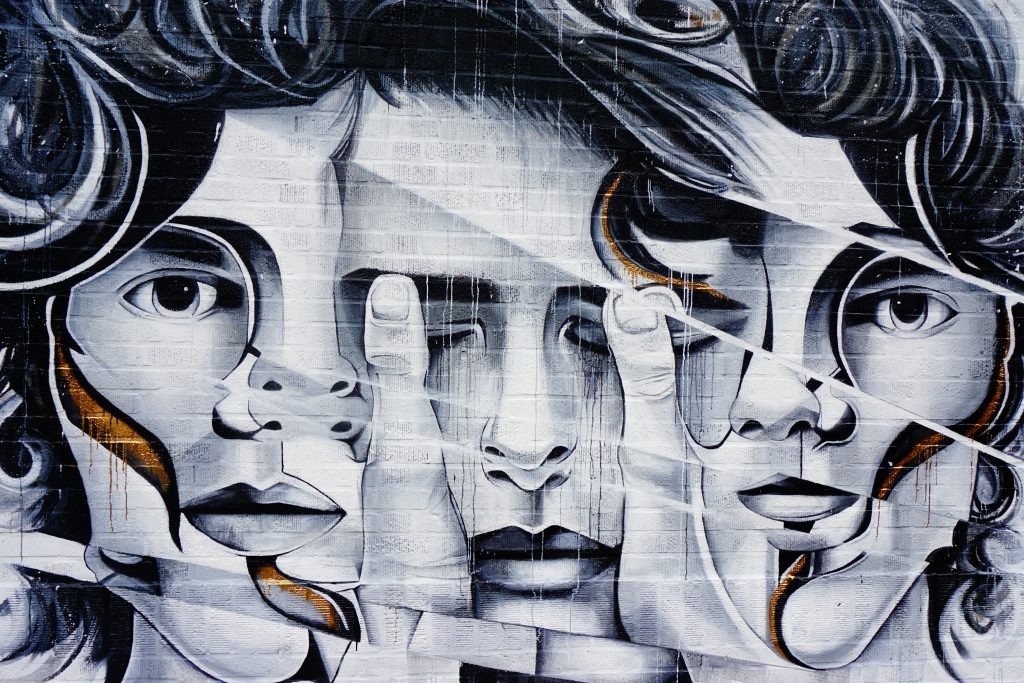I stopped reading Surah al-Kahf every Friday for a while.
I felt I was doing it mechanically and not really benefitting from it.
It doesn’t take long to read. More or less 20 minutes.
But to feel the effects of the surah from one week to the other, I needed more than just a routine.
So I took the time this month to go through hours of lectures on Bayyinah TV.
My hope was to gain a new appreciation of Surah al-Kahf.
In a nutshell, one of the goals of this surah is to redefine what is a successful relationship with the material world.
By alternating direct addresses to us and stories, Allah wants to develop a balanced view of this world.
From those lectures, three things resonated with me which I want to expand on:
-The Different Shapes of Allah’s Mercy
-Reading Through Allah’s Actions
-Open Both Eyes
The Different Shapes of Allah’s Mercy

Dhu al-Qarnayn just finished building the barrier protecting the people from Gog and Magog. He said then: “This is a mercy from my Lord.” [Quran 18:98]
Moses (as) couldn’t understand al-Khidr’s actions. He damaged a boat, killed a young boy, and repaired a wall. When he finished with the wall, al-Khidr said: “…as a mercy from your Lord. I did not do these things on my own accord.” [Quran 18:82]
You would agree that most of us prefer Dhu al-Qarnayn’s type of mercy.
There you have a wall with obvious, clear, and immediate benefits.
But we don’t like Khidr’s type of mercy because we don’t get it.
When something bad happens to us, we show our discontent to God by asking: why did you do this to me?
Others might say: how can God exist with all this suffering on earth?
With our limited knowledge, we try to question the actions of someone who has complete knowledge!
Joseph (as) was thrown in a well, then in jail, and only after he became a minister and reunited with his family.
We know that the first part of his life was also mercy because we have the full story.
And this is the main takeaway.
Allah’s mercy can be a comfort or pain.
By broadening our view of Allah’s mercy, we’ll become more accepting of the type of mercy we don’t understand.
Reading Through Allah’s Actions

In life, incomplete information is a constant.
There are so many things we don’t know.
Take the story of two gardeners in Surah al-Kahf.
One was boasting about his wealth and offspring in front of the other.
He thought his possessions will last forever. And even if it doesn’t, he was sure Allah will grant him a VIP place in the afterlife.
We know how the story ends. Everything was taken away from him.
Fooled by his possessions, he thought he knows Allah’s intentions.
By doing so, he placed himself as an equal to God.
We might do the same without even realizing it.
When the good times knock at our door, we take it as a sign that Allah loves us, that we deserve it.
Contrast this attitude with the story of Dhu al-Qarnayn.
On one hand, Dhu al-Qarnayn has a kingdom yet remains humble. Whatever good gets his way, he attributes the merit to Allah instead of taking credit for it.
On the other hand, you have a person full of himself with a garden. He thinks he understands God and even knows His future plans!
We could say the same for our bad times. We can’t interpret those as a sign that Allah hates us.
The most beloved creatures to God are His prophets. Yet, they are the ones who experienced the most hardships.
The point is that we can’t fully understand Allah’s actions based on our limited knowledge.
There is a certain comfort in knowing that Allah knows best and we just leave it that way.
Open Both Eyes

Every form in this world has a correspondent one in the unseen world.
When the Quran describes certain people as blind and deaf, it refers to their spiritual counterparts. They are physically capable of seeing and hearing, but can’t go beyond that.
Our world is encouraging this tendency.
Extreme materialism has pushed out of the stage God, the soul, and the afterlife.
The only ones left are physical sciences, the body, and life here and now.
This is not what Islam is calling for.
Islam is calling us to look at reality with both eyes open, considering the seen and the unseen.
Dhu al-Qarnayn was God-conscious but he also had engineering knowledge to build the impassable wall.
This is the balance we want to reach.
Perfecting our knowledge of the physical world while being God-conscious, respecting the rights of the body without neglecting the soul, and living the good life while preparing for the next one.
It’s not a coincidence that Surah al-Kahf is recommended to read and memorize.
Materialism is a threat to faith and this surah can help us keep this threat in mind.
The good news is, whether it’s the beginning or the end of times, guidance was and will always be possible.
Guidance is not related to the environment.
The Youth of the Cave didn’t have the right environment but were guided. The kid taken by Khidr had righteous parents but didn’t grow well.
The world will keep changing; Allah and His words will remain the same.
Guidance will always be possible for the seekers.
All we need to do is to keep both eyes open.
Final Thoughts on Surah al-Kahf

Having only one open eye has many consequences.
One of them is all the blessings God keeps showering upon us go unnoticed.
It’s a missed opportunity to strengthen our hearts and reaffirm our faith.
We’ll never be able to list all Allah’s blessings:
“If you tried to count Allah’s blessings, you could never take them all in.” [Quran 16:18]
How much do the Sleepers of the Cave remember of Allah’s care during those 300 years?
My best guess is nothing.
Similarly, we don’t notice most of the favors God showers upon us.
But the more blessings we can identify, the richer our inner world would be.
We might feel loved, special, or protected.
We might derive the strength to go through hardship and the energy to accomplish something worthy.
Some blessings are obvious. Others are hidden.
And the more we can identify, the closer we get to Him.
Article published: August 18, 2022
Popular Articles
- 7 Lessons from Luqman that Will Make You Wise
- Are Muslims Meant to Be Sleep Deprived?
- How to Enjoy Salat and Make it Meaningful
- Mongols Invasions: Some Forgotten Lessons to Today’s Muslims
- Islamic Psychology: A Model Where Faith Has Its Place
- Muslims Judging Each Other: Why and How to Be Less Judgy
- 3 Tips to Unlock the Believer Mindset
- How to Honor the Prophet
- Healing with the Medicine of the Prophet
- How to Make People Change their Mind: Persuasion!
- The Value of Time
- Islamic Medicine from a Sufi Perspective (Part 1)
- The Certainties of Muslims in an Uncertain World
- Allah According to Allah: The Beauty Behind the Verse of Light
- 5 Powerful Duas from the Quran to Help You in Both Worlds
